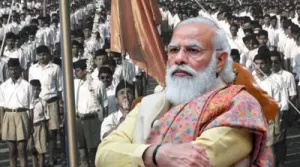The idea of freedom — academic or otherwise — in higher education institutions is increasingly under assault in Narendra Modi’s India. The modus operandi varies. The onslaught can take place in the form of a covert intrusion, such as the whittling of the autonomy of educational institutions; even the University Grants Commission has not been spared. Another example of this could be the law that seeks to change the way Indian Institutes of Management are run: instances of overreach by the authoritarian government in the education sector are thus numerous but subtle. But there are also instances of intervention that are more direct and, hence, visible: universities frowning upon students’ rights to protest are an example of the latter. In a recent directive, the administration of the Jawaharlal Nehru University has banned all forms of protest within a 100-metre radius of the administrative and academic blocks of the university. The approved disciplinary rulebook lists expulsion from the hostel, rustication and penalties of up to Rs 20,000 — the sum is above the average fee of post-graduate courses — as possible punitive measures should any student be found in violation of the code. Further, even slogans classified as ‘anti-national’ — a nebulous term — could attract fines of up to Rs 10,000. This move seems to be consistent with a growing trend across campuses in the country. Over the past year, South Asian University has punished its students for agitating in favour of higher stipends for scholars; Visva-Bharati, a Central university, suspended a student for social media posts in support of the Nobel laureate, Amartya Sen.
Militant student activities have often tarnished campuses. But this history cannot be weaponised by universities to curb legitimate student protests. There is a case to argue that the crackdown on students’ protests is not independent of the broader pushback against dissent on the part of the ruling regime. Moreover, some demonstrations are necessary for highlighting administrative lacunae: the protests against the English and Foreign Languages University administration’s reluctance to constitute an internal sexual harassment committee bears evidence of that. This constriction of the aggrieved voice of students is also consistent with the government’s attempt to reshape the idea of the university. A university, for the State, should merely be a sanitised site of formal curriculum: it should not be a sanctuary that encourages young minds to engage in critical analysis and speak truth to power.
(Courtesy: The Telegraph.)




